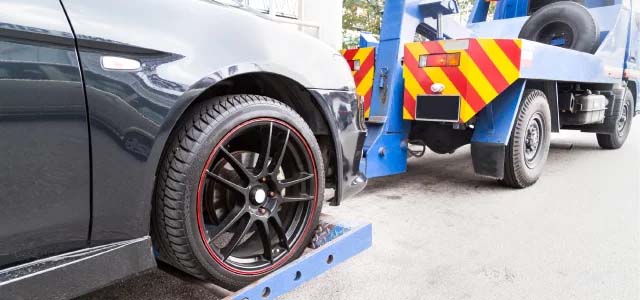
Will Filing Bankruptcy Affect My Tax Refund
If I file for bankruptcy, will it affect my tax refund? It depends on the time of the year that the bankruptcy is filed. After a bankruptcy petition is filed, the tax refund is considered property of the bankruptcy estate. This means the trustee has the right to that refund so that he or she can distribute it equally to the unsecured creditors.

Can Filing Bankruptcy Stop a Lawsuit?
I am being sued. Can filing for bankruptcy stop a lawsuit? Yes and no. The end result of a lawsuit is a judgment against the loosing party, resulting in money damages. If a creditor wins a lawsuit against the Debtor, the creditor must collect on that judgment.

Bankruptcy and Rental Property
If I file for bankruptcy, will I loose my second house? It depends on whether a Chapter 7 bankruptcy or a Chapter 13 bankruptcy is filed. A Chapter 7 bankruptcy is also known as a “liquidation” bankruptcy. If a Chapter 7 is filed by an individual or a consumer, as opposed to a business, the consumer gets to keep only that property which is exempt under Arizona law.

Bankruptcy and Foreclosure
I am behind on my mortgage payments – can bankruptcy protect my home? Yes and no, depending on which bankruptcy chapter one chooses to file. At first, all the property that a Debtor owns except property that is exempt under Arizona law (if the Debtor lives in Arizona) becomes part of the bankruptcy estate, regardless of which Chapter is filed. The exempt property and the property in the bankruptcy estate is protected by the automatic stay.

President Obama Announces To Give Work Permits to Undocumented Immigrants With Children
As President Obama returns from his trip to Asia, he was planning to allow parents of US citizen children who are American citizens or legal residents to apply for work authorization so that they could work legally and not worry about deportation.



Presidente Obama Estaba Pensando en Extender la Accion Diferida a Los Inmigrantes Indocumentados
Aunque se ha especulado en las noticias durante el ultimo par de semanas que el Presidente Obama estaba pensando en extender la accion diferida a los inmigrantes indocumentados de una manera similar a la accion diferida concebida a los jovenes con diploma de la escuela secundaria hace unos anos, esto era solo un juego de adivinanzas.


How to Stop Annoying Creditors
I am being harassed! What can I do to stop the calls? There are ways of stopping annoying creditor calls, or at least minimizing them. Credit collection became so harassing that Congress passed the Fair Credit Collection Practices Act, 15 U.S.C. Section 1692. Under the Fair Credit Collection Practices Act, a creditor may not call a borrower before 8:00 o’clock in the morning or after 9:00 o’clock in the evening. The creditor also may not contact any third parties such as neighbors or friends to ask questions about the borrower. Finally, the creditor is prohibited from calling the borrower at work, or from threatening the borrower with criminal prosecution.


Bankruptcy and Wage Garnishment
Can bankruptcy stop a creditor from taking money out of my paycheck? Yes. When money is owed to a creditor, the creditor can go to court and get a judgment against the Debtor. If the Debtor don’t work something out with the creditor to pay off the judgment, the creditor can file a Writ of Garnishment with the Court, and the Writ then forces the Debtor’s employer to take money out of each paycheck and pay it to the creditor.


Bankruptcy and Co-signed Debt
I co-signed my son’s car that the bank repossessed- can the bank go after me? If a Debtor co-signed a debt such as a car loan for their son and the son cannot make the payments, the bank will generally repossess the car and sell it at auction. Because the car will not sell for as much as what the son owes on the debt, the bank will have a deficiency judgment for the difference between what is owed and for what the car sold.


Bankruptcy and Repossession
Can bankruptcy stop the bank from taking my car? Yes and no. When filing for bankruptcy, generally everything a Debtor owns becomes property of the bankruptcy estate, except property which is exempt under Arizona law (if you live in Arizona). The bankruptcy estate is protected from the collection efforts of creditors by the automatic stay. Arizona exemption statutes protect exempt property.




